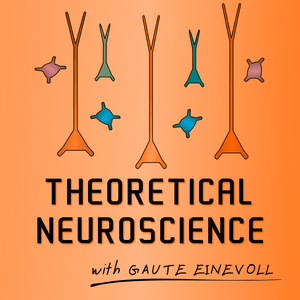Keine Werbung. Mehr Prime.
Keine Werbung. Mehr Prime.
Keine Werbung. Mehr Prime.
Keine Werbung. Mehr Prime.
Der Podcast startet in
- 0 Sek.
On reproducibility of modeling and 10 years with the Potjans-Diesmann network model - with Hans Ekkehard Plesser - #37
On modeling metabolic networks in the brain – with Polina Shichkova - #35
On computational neurotechnology for the clinic - with Anthony Burkitt, Nada Yousif & Esra Neufeld - #33



Theoretical Neuroscience Podcast